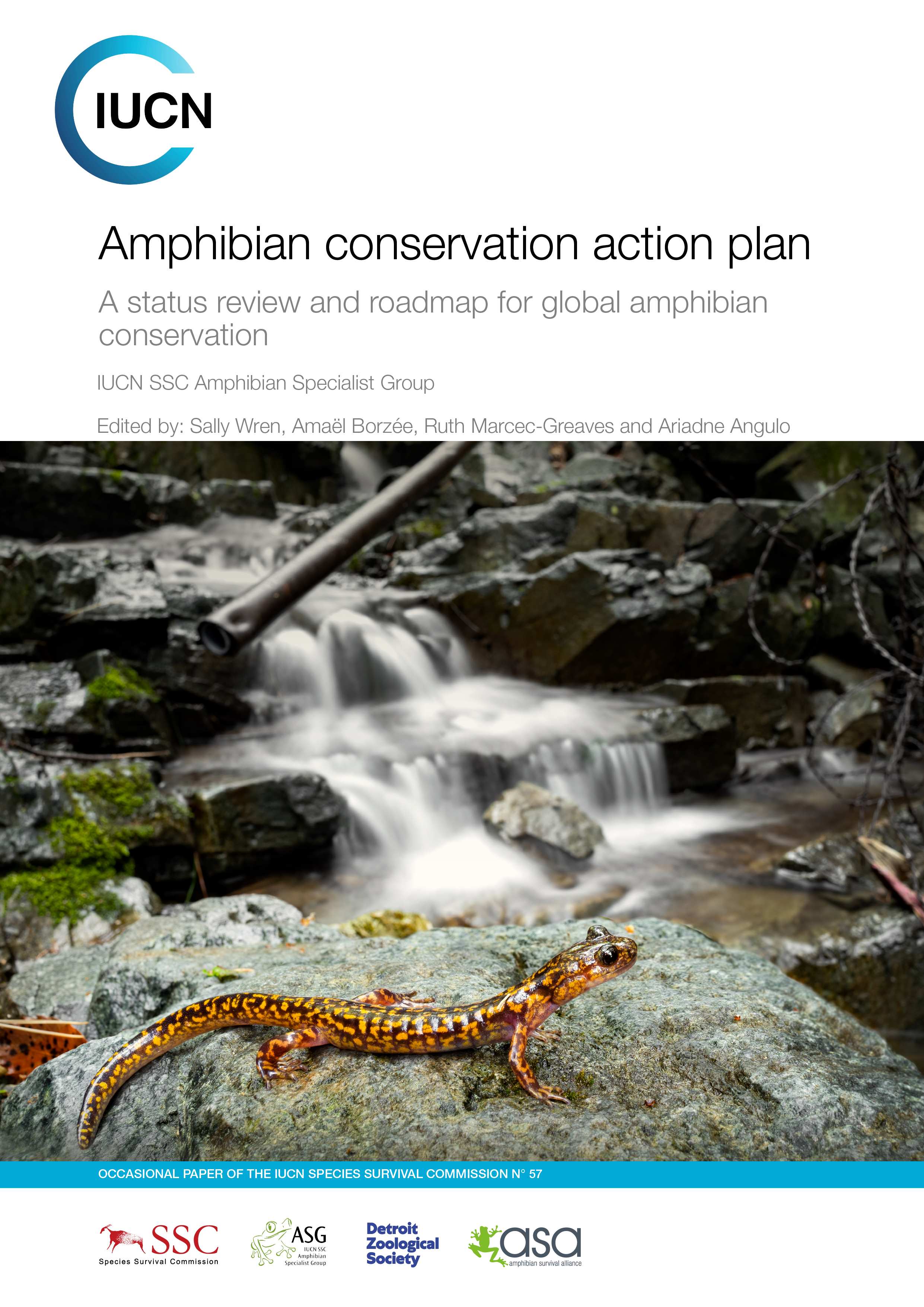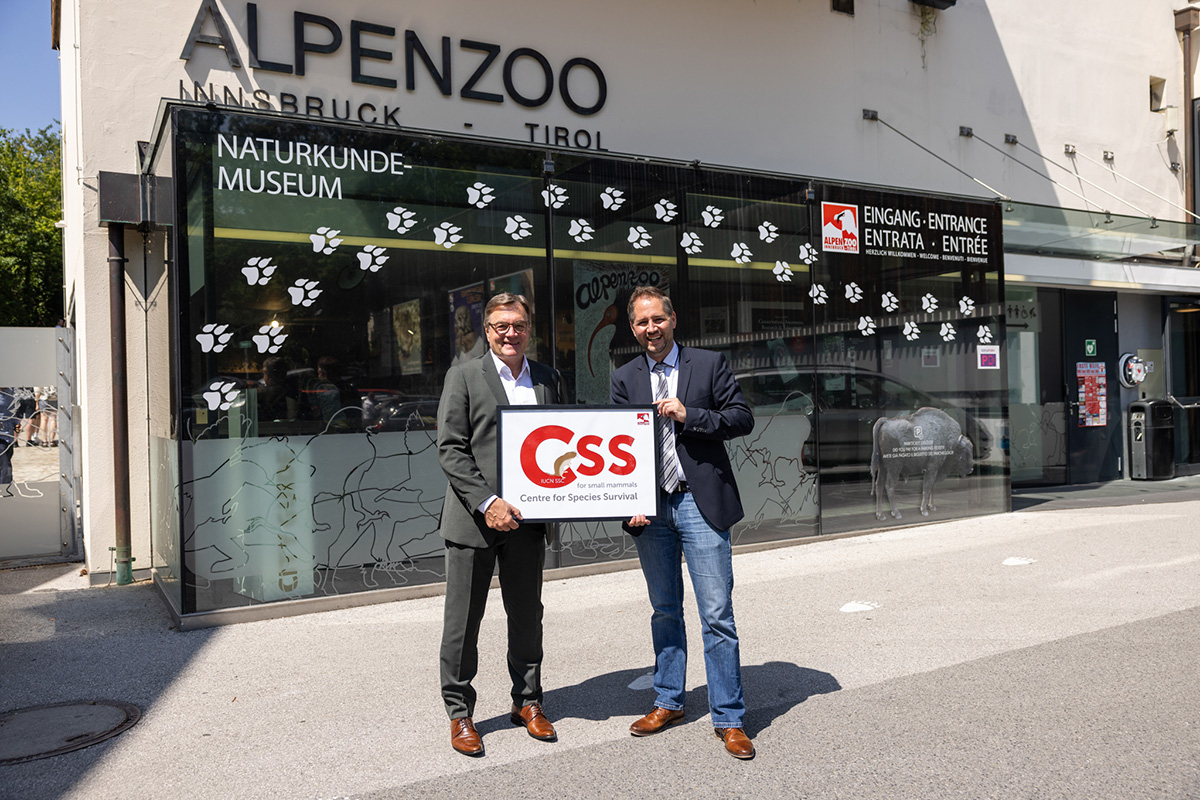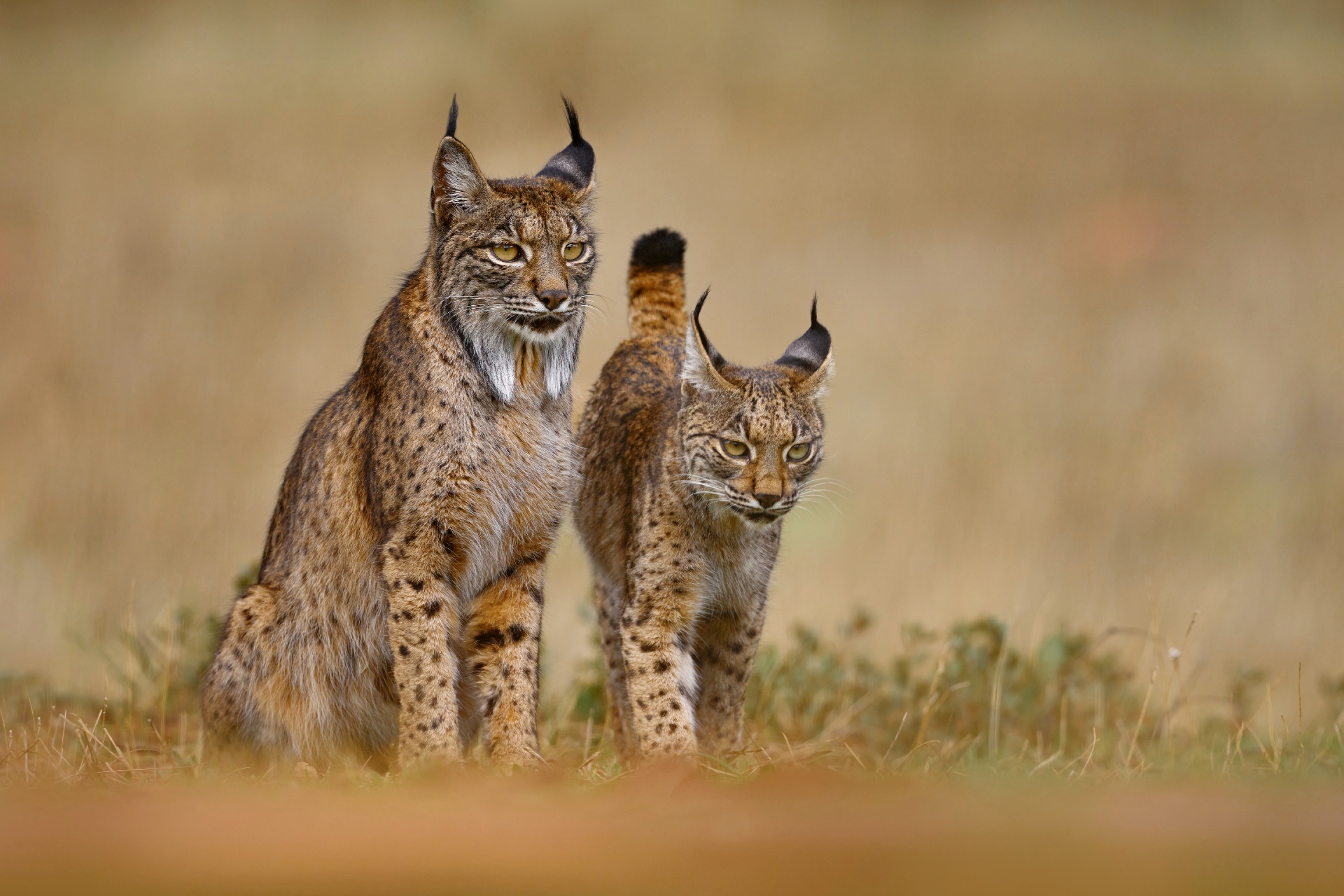IUCN Species Survival Commission acknowledges vital contributions of Botanic Gardens, Aquariums, and Zoos to wildlife conservation
Through a Position Statement released today, the IUCN Species Survival Commission (SSC) proudly recognizes and applauds the significant contributions made by botanic gardens, aquariums, and zoos in their critical mission of conserving wild animals, fungi, and plants.
In an era where the conservation landscape is evolving, SSC acknowledges the pivotal role that these institutions play at the crossroads of ex situ and in situ conservation efforts. The diverse contributions span a spectrum of activities, including applied genetic, behavioural, and veterinary science, wildlife reintroduction and translocation, research, education, community engagement, policy development, and fostering access to nature-based experiences.
The IUCN SSC Position Statement on the role of Botanic Gardens, Aquariums and Zoos is the result of an extensive, collaborative process marked by iterative refinement and distributed public consultation. Led by Kris Vehrs, former Executive Director of the Association of Zoos and Aquariums (AZA); Kira Mileham, SSC Director of Strategic Partnerships; Mayerlin Ramos, SSC Partnerships and Grants Coordinator; and Jon Paul Rodríguez, SSC Chair, the formulation of this statement involved dedicated working groups comprising experts from various sectors across the field of species conservation.
“Botanic gardens, aquariums and zoos have been part of IUCN since the Union’s creation at Fontainebleau on 5 October 1948. As we commemorate our 75th anniversary, we submit to the wider conservation community, and especially to all institutions that manage animals, fungi and plants ex situ, our IUCN Species Survival Commission Position Statement on the Role of Botanic Gardens, Aquariums, and Zoos in Species Conservation.” says Jon Paul Rodríguez, SSC Chair. “On the one hand, we recognize and celebrate their major contributions to reversing the decline of hundreds of species, and for setting standards for keeping them under human care. Such achievements demonstrate the expertise, knowledge, and inspiration needed to mobilize for action and succeed in bringing back animals, fungi and plants from the brink of extinction. On the other hand, we invite institutions that have not yet reached the level of the leaders in the field to consider means by which to truly fulfil their conservation goals. Although it is clear that ex situ approaches are a fundamental element in our conservation toolbox, we must always keep in mind that our ultimate purpose is to assure that all animals, fungi and plants thrive in nature, coexisting with humans in a gradient from urban settings and human-dominated landscapes to remote, pristine locations where people’s influence is barely detectable.”
In a call to action, SSC encourages all entities, including government agencies, to foster collaboration with botanic gardens, aquariums, and zoos. This collective effort, under the umbrella of the One Plan Approach, exemplifies the commitment to a unified strategy for saving species from the brink of extinction.
From that perspective, Razan Al Mubarak, IUCN President, also welcomed the SSC statement indicating: “I have been personally involved in efforts for reversing population declines and improving the conservation status of species, and the inspiring success stories I have seen give me hope. It is never too late. Species can recover in the wild, if given a chance in well-managed captive populations such as those maintained by zoos, botanic gardens and aquaria.
The IUCN Species Survival Commission Position Statement on the Role of Botanic Gardens, Aquariums, and Zoos in Species Conservation recognizes the leading role that these organisations already play in the science and practice of conservation, and invites others to reach their full potential, working alongside governments and key partners to collectively achieve IUCN's One Plan Approach.”
The document also includes a rationale behind the Statement, along with a list of examples of roles botanic gardens, aquariums and zoos can, and do, fulfil in the conservation of wild species. This SSC position statement directly contributes to the implementation of Resolution WCC-2020-Res-079 on linking in situ and ex situ efforts to save threatened species. It also complements similar positions taken by CITES and CBD through the Global Strategy for Plant Conservation and through the explicit reference to ex situ in the new Target 4 of the Global Biodiversity Framework.
###
Additional quotes:
“For too long species conservation efforts have been siloed and focused at the project level, often with expertise and activities segregated between wild populations and those in human care. This position statement highlights that many botanic gardens, aquariums and zoos around the world are critical partners in species survival and in connecting with communities to inspire further action. It is past time that we recognise the roles that leading botanic gardens, aquariums and zoos play in saving species, that we encourage those who are not yet fulfilling these roles to do so and that we work as one united species conservation community. Only then will we succeed in halting extinctions and recovering populations of plants, animals and fungi around the world to ensure a shared future for us all.” Kira Mileham, Director of Strategic Partnerships, IUCN SSC & Co-convener of the Position Statement.
“This document is a key step in providing long-overdue recognition and respect for the unique and critical roles played by zoos, aquariums and botanic gardens in species conservation and in engaging communities in efforts to protect and restore nature. I am incredibly proud to have helped lead the collaborative effort of producing this statement which reflects contributions from more than 400 people from around the world.” Kris Vehrs, retired former Association of Zoos and Aquariums (AZA) Executive Director & Co-convener of the Position Statement.
“For the World Association of Zoos and Aquariums (WAZA) and its members, this IUCN SSC position statement is an acknowledgement of the role of progressive zoos and aquariums as key partners in species conservation, taking forward WAZA's new strategic priorities. Our members are proud to be vital stakeholders in halting biodiversity decline through joint initiatives with the IUCN SSC such as Reverse the Red and in their individual capacity. This statement further strengthens the unique roles that zoological and aquaria institutions are playing and must continue to play as part of the global conservation community.” Martín Zordan, Chief Executive Officer World Association of Zoos and Aquariums (WAZA)
“Leading zoos around the world contribute significantly to conservation, and their integrated approach can create hope for some of the most threatened and endangered wildlife worldwide. San Diego Zoo Wildlife Alliance celebrates the IUCN SSC position statement and their call for a One Plan Approach to use our collective expertise to halt the enormous loss of biodiversity on a global scale we are all witnessing. We are honored to welcome the international conservation community to our home in San Diego as we share this announcement with the world, and continue to work together to create a world where all life thrives.” Paul Baribault, President and Chief Executive Officer, San Diego Zoo Wildlife Alliance (SDZWA) host of the IUCN SSC Global Center for Species Survival: Biodiversity Banking & host of the WAZA 2023 Conference
“As a longstanding member of IUCN and partner of SSC, EAZA welcomes this position statement. It clearly demonstrates the crucial and often unique roles of progressive zoos and aquariums in species conservation. EAZA strongly supports the emphasis put on collaboration across in situ and ex situ conservation activities to enable impactful conservation outcomes.” Myfanwy Griffith, Executive Director, European Association of Zoos and Aquaria (EAZA)
“Botanic gardens have led the development and implementation of the Global Strategy for Plant Conservation for more than 20 years but a huge amount remains to be done. Fewer than 40% of threatened plant species are conserved in seed banks, and even fewer are subject to recovery actions in situ. The new Global Biodiversity Framework, with its emphasis on restoration and recovery, is a call to action for botanic gardens. BGCI joins IUCN SSC in calling for all botanic gardens to step up to this challenge before it is too late, and these plants – and the myriad of other life they support – are gone forever.” Paul Smith, Secretary General Botanic Gardens Conservation International (BGCI)
“With one-third of the world’s tree species threatened with extinction, cross-sector conservation efforts are more important than ever. This position statement serves as a timely call to action for arboreta and other botanic gardens to continue and expand our impactful work conserving the world’s trees, which are essential to all life on earth.” Jill Koski, president and CEO of The Morton Arboretum, host of the IUCN SSC Center for Species Survival: Trees.
###
For media inquiries, please contact:
Aritzaith Rodríguez, SSC Communication Coordinator, ssc@iucn.org
Harriet Brooker, IUCN Global Communications, press@iucn.org
About IUCN Species Survival Commission (SSC)
With over 9,500 members in 186 territories, the Species Survival Commission (SSC) is the largest of IUCN's seven expert Commissions. SSC plays a pivotal role in enabling the IUCN to influence, encourage and assist societies to conserve biodiversity by building knowledge on the status and threats to species, providing advice, developing policies and guidelines, facilitating conservation planning, and catalysing conservation action. www.iucn.org/ssc
About the International Union for Conservation of Nature (IUCN)
IUCN is a membership Union composed of both government and civil society organisations. It harnesses the experience, resources and reach of its more than 1,400 Member organisations and the input of more than 15,000 experts. IUCN is the global authority on the status of the natural world and the measures needed to safeguard it. www.iucn.org



